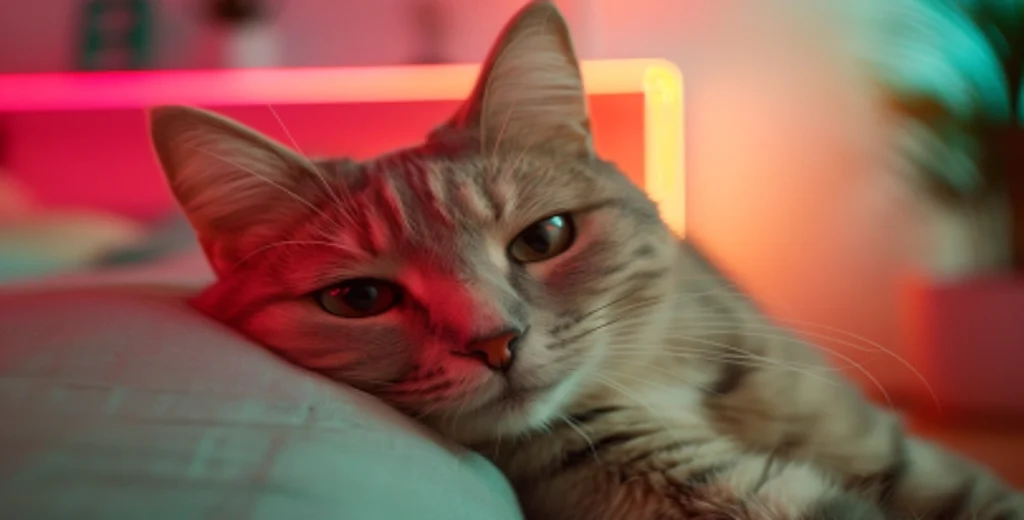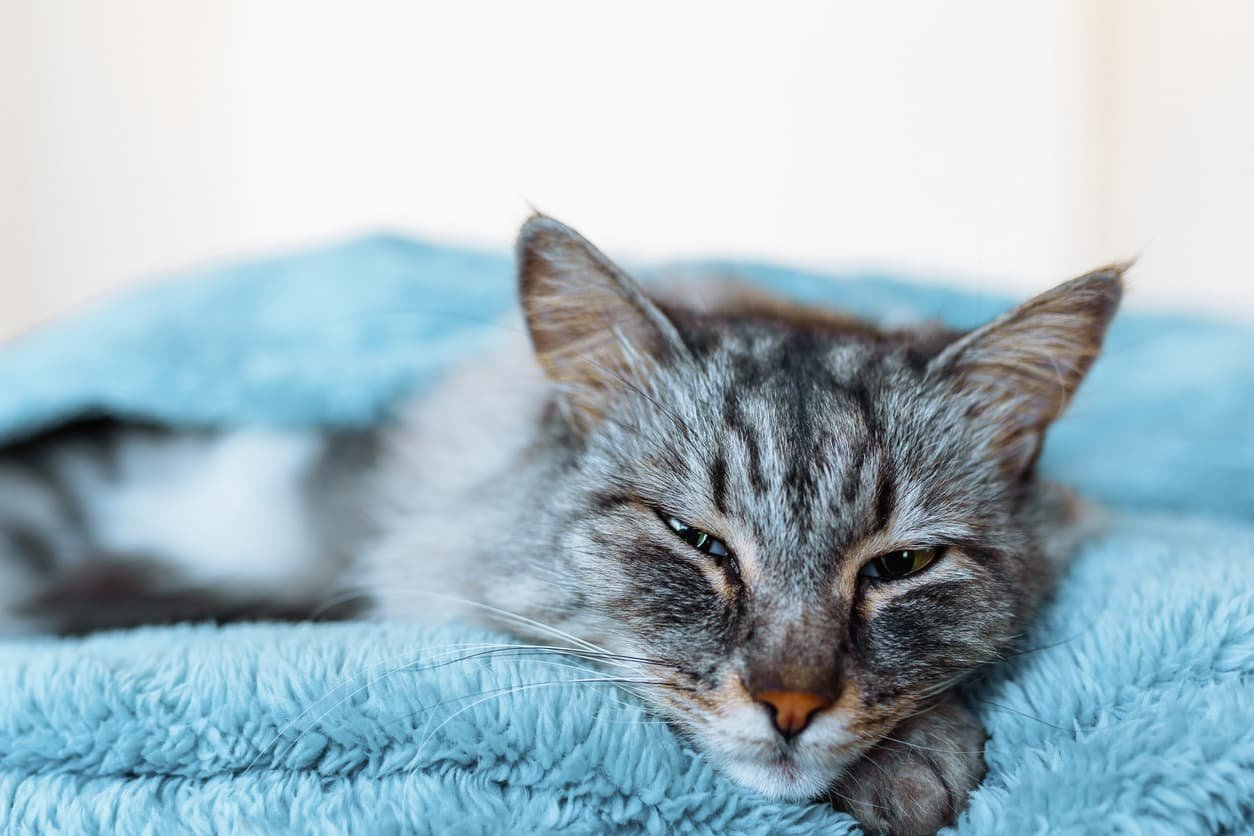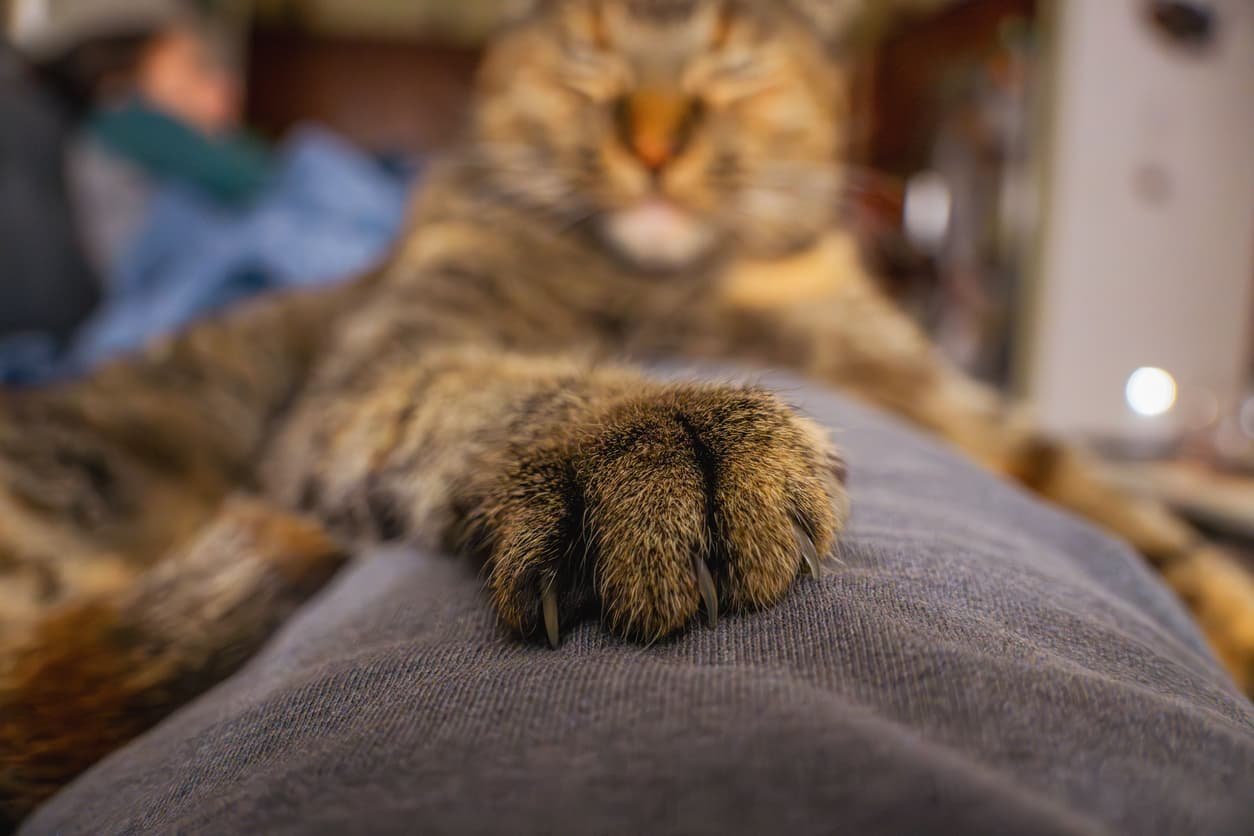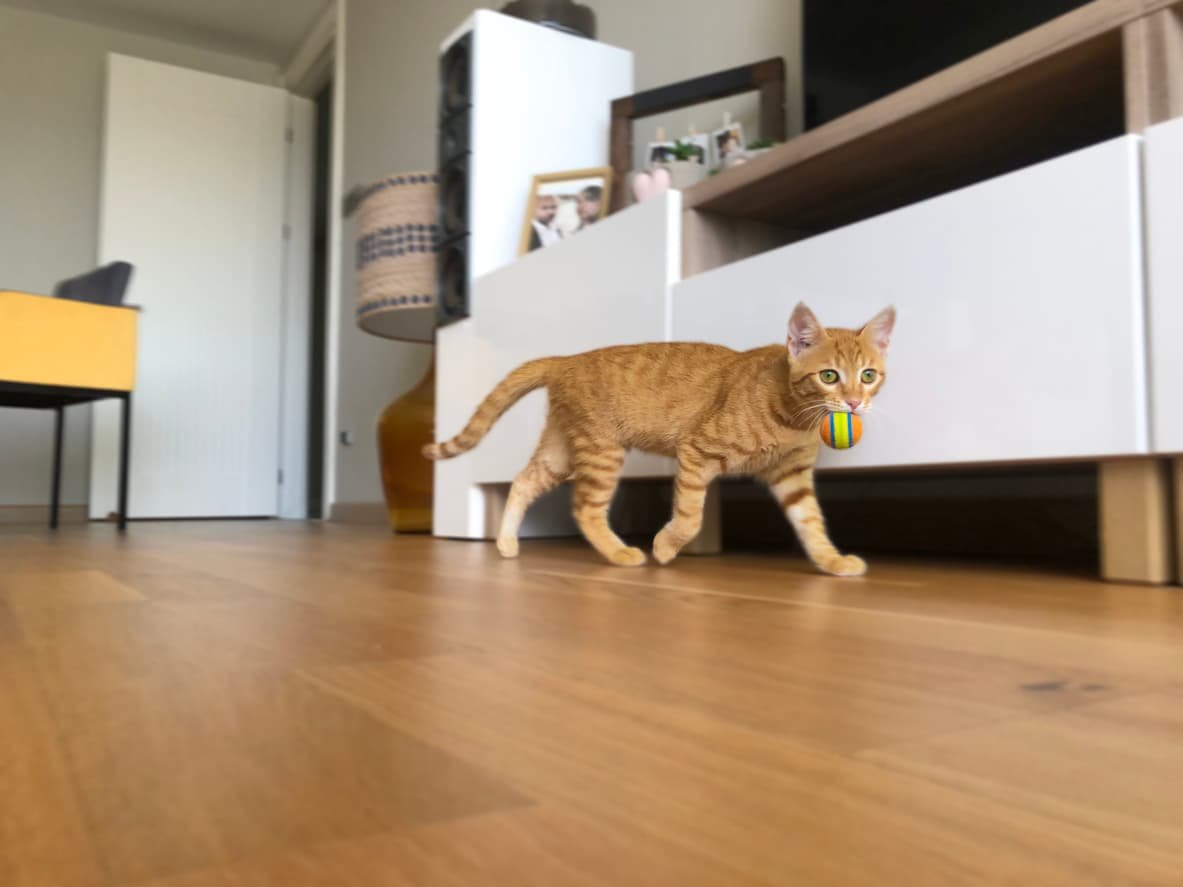If you’re a cat owner, you’ve likely experienced your feline friend pressing their head against you in a gesture that feels both charming and mysterious. Known as “head-butting” or “bunting,” this behavior leaves many cat parents wondering, why does my cat head-butt me? It turns out, this adorable act is deeply rooted in feline instincts and serves as a powerful form of communication.
In this comprehensive guide, we’ll explore the reasons why your cat engages in head-butting, what it signifies, and how you can respond in ways that strengthen your bond.
Table of Contents
Toggle1. Why Does My Cat Head-Butt Me? Marking Their Territory with Love
Cats are territorial by nature, and one of their key ways of claiming their space is through scent marking. When your cat head-butts you, they’re using the scent glands located on their cheeks and forehead to transfer their unique scent onto you. This behavior essentially marks you as part of their territory, signaling comfort and ownership.
In the wild, cats use scent marking to establish their presence in a particular area and to communicate with other animals. For domestic cats, this behavior shifts to a more affectionate purpose. By head-butting you, your cat is saying, “You’re mine, and I feel safe with you.”
2. Why Does My Cat Head-Butt Me? Building Social Bonds
One of the most heartwarming reasons behind head-butting is its role in social bonding. Among cats, head-butting is a common way to greet and bond with other cats in their group. When they extend this behavior to humans, it’s a clear sign that they see you as part of their inner circle.
This behavior is particularly common in well-socialized cats or those that have grown up in environments with positive human interaction. The act of head-butting reinforces the trust and affection your cat feels toward you, making it one of the most meaningful gestures in the feline world.
3. A Loving Nudge: Why Does My Cat Head-Butt Me to Get My Attention?
Sometimes, the answer to why does my cat head-butt me is as simple as a plea for attention. Cats are known for their clever ways of getting noticed, and head-butting is one of their most effective strategies. Whether they’re in the mood for a cuddle, some playtime, or their favorite treat, a gentle head-butt is often their way of saying, “Pay attention to me!”
This behavior is usually accompanied by other signs of affection, such as purring, rubbing against your legs, or even making eye contact. It’s a cat’s way of ensuring you understand their needs and respond accordingly.

4. Expressing Trust: Why Head-Butting Is a Sign of Vulnerability
Cats are naturally cautious and reserved creatures, especially when it comes to exposing vulnerable parts of their body. By head-butting you, your cat is revealing one of their most sensitive areas—their face. This act demonstrates a high level of trust and comfort, as they feel safe enough to let their guard down around you.
For rescue cats or those with a history of trauma, head-butting can be especially significant. It’s their way of saying they feel secure in your care, and it’s a gesture that should be met with understanding and appreciation.
5. Sharing Joy: Why Does My Cat Head-Butt Me When They’re Happy?
Another reason your cat head-butts you is simply because they’re happy. Cats display their contentment through a variety of behaviors, and head-butting is one of the most joyful expressions. Often paired with purring, kneading, or relaxed body language, it’s a clear indication that your cat is feeling good and wants to share their happiness with you.
These moments are perfect opportunities to reciprocate the affection. Gently pet your cat, speak to them in soothing tones, and enjoy the bond you share.
6. Scent Sharing: A Feline’s Way of Creating Familiarity
Cats rely heavily on their sense of smell to navigate their world and understand their surroundings. When your cat head-butts you, they’re blending their scent with yours, creating a shared smell that fosters familiarity and security. This behavior is especially common in multi-pet households, where scent sharing helps establish harmony among group members.
By head-butting you, your cat is ensuring that you “smell like family.” It’s a subtle yet profound way of strengthening the connection between you and your feline companion.
7. Distinguishing Head-Butting from Head Pressing
While head-butting is a positive and affectionate behavior, it’s essential to differentiate it from head pressing—a concerning sign of potential health issues. Head pressing occurs when a cat forcefully and repetitively presses their head against surfaces like walls or floors. Unlike the gentle, playful nature of head-butting, head pressing often indicates neurological problems or discomfort.
If you observe head pressing in your cat, consult a veterinarian immediately to rule out underlying medical conditions.
8. Evolutionary Roots: Why Does My Cat Head-Butt Me?
Head-butting isn’t just a domestic quirk; it’s a behavior with deep evolutionary roots. In the wild, big cats like lions and cheetahs engage in similar actions to strengthen social bonds and communicate within their pride or coalition. For domestic cats, this instinct has been adapted to their interactions with humans.
When your cat head-butts you, they’re channeling behaviors that have been passed down through generations. It’s a reminder of their connection to the wild and the unique bond they share with you.
9. How to Respond When Your Cat Head-Butts You
Understanding why does my cat head-butt me is only part of the equation. Knowing how to respond can enhance your relationship and encourage this affectionate behavior. Here are some tips:
- Acknowledge the gesture: Give your cat gentle pets or scratches in their favorite spots.
- Use positive reinforcement: Speak to your cat in a calm, loving tone to let them know you appreciate their affection.
- Create a comfortable environment: Ensure your home is a safe and relaxing space where your cat feels secure.
By responding positively, you’ll deepen the trust and affection between you and your feline friend.
10. Why Some Cats Don’t Head-Butt
Not all cats engage in head-butting, and that’s perfectly normal. Each cat has a unique personality and their own way of expressing affection. While some cats prefer head-butting, others may show their love through kneading, following you around, or curling up on your lap.
If your cat doesn’t head-butt you, don’t take it as a sign of disinterest. Instead, pay attention to their preferred methods of communication and respond in ways that make them feel loved.
Conclusion: Why Does My Cat Head-Butt Me? It’s All About Love and Trust
So, why does my cat head-butt me? Whether it’s to mark their territory, seek attention, or share their happiness, this behavior is a beautiful expression of love, trust, and connection. By understanding and appreciating this gesture, you can strengthen the bond you share with your feline companion.
The next time your cat gently presses their head against you, take a moment to cherish the connection. It’s their unique way of saying, “You’re special to me,” and a reminder of the unspoken language you share.
FAQ
Is it normal for cats to head-butt their owners?
Yes, it’s perfectly normal! Cats head-butt (also called bunting) to show affection and mark you with their scent, signaling trust and bonding. It’s one of the sweetest signs your cat feels safe and connected to you.
Why does my cat head-butt me and then walk away?
Your cat head-butts you to show affection or mark you with their scent, then walks away because they've made their point—it’s a quick, loving gesture, not always an invitation to interact further.
Do all cats head-butt?
Not all cats head-butt. While many do it to show affection and bond, some cats express love differently—like sitting nearby or purring. Personality, socialization, and comfort levels all influence this behavior.
Can head-butting ever be a sign of a problem?
Rarely, but yes—if head-butting is excessive, forceful, or paired with other odd behaviors, it could signal a neurological issue or discomfort. If your cat suddenly changes behavior, it's best to consult a vet.
Should I respond when my cat head-butts me?
Yes, respond gently! Pet them, speak softly, or return the gesture with affection. It strengthens your bond and reassures your cat that their affection is welcomed and reciprocated.
Does a cat headbutting you mean they love you?
Yes, a cat headbutting you usually means they love and trust you. It’s a sign of affection and bonding, as they’re marking you with their scent and showing you’re part of their safe, social circle.
Should I head bump my cat back?
You can gently nuzzle or lean your head close, but avoid direct bumps—cats have sensitive heads. Softly returning the gesture with petting or a calm voice shows affection and strengthens your bond safely.







